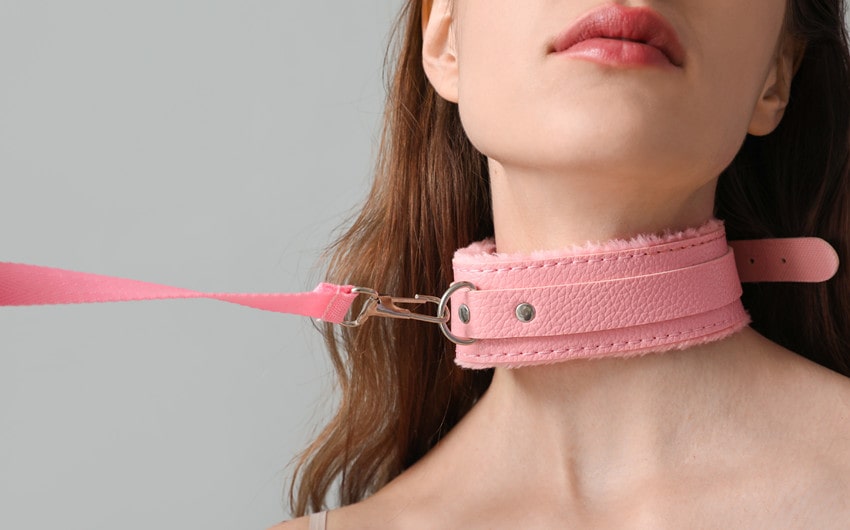Understanding What Is a Daddy Dom in a Relationship
In BDSM dynamics, you may have heard the term “Daddy Dom” and wondered what it means. So, what is a Daddy Dom? A Daddy Dom is a type of dominant partner who focuses on nurturing, guiding, and caring for their submissive partner, often called a “little.” Unlike other types of dominance, this dynamic is built on emotional support, trust, and mutual respect.
While the term might sound intimidating, it’s actually about creating a safe, supportive environment where both partners’ needs are understood and respected. Let’s dive deeper into what this relationship dynamic involves.
What Is a Daddy Dom?
A Daddy Dom is a dominant figure in a BDSM relationship who takes on a nurturing and protective role. Unlike more traditional dominance, which can be focused purely on power and control, a Daddy Dom’s approach emphasizes care, guidance, and emotional support for their submissive partner, often referred to as a “little.” The relationship is built on trust, with the Daddy Dom providing boundaries and structure while ensuring their partner feels safe and valued.
Daddy Doms offer a combination of authority and affection. They help their submissive partner grow emotionally and mentally, providing discipline when needed but in a loving, encouraging way. The dynamic is often less about strict control and more about fostering personal development and emotional intimacy. This can include everyday guidance, support during tough moments, and setting goals for self-improvement.
At the heart of the Daddy Dom dynamic is mutual respect and consent. Both partners agree on the terms of their relationship, including boundaries, rules, and levels of care. A Daddy Dom is not about manipulation or control but about creating a space where their submissive partner can thrive with a balance of discipline and affection. This dynamic can be deeply fulfilling for both parties, blending authority with a strong emotional connection.

Common Misconceptions About Daddy Doms
It’s Not About Age Play or Pedophilia
One of the biggest misconceptions about Daddy Doms is that their role is linked to inappropriate or harmful behaviors, such as pedophilia or age play. This misunderstanding arises from the use of the term “Daddy,” which some people mistakenly associate with unhealthy or non-consensual relationships. In reality, a Daddy Dom dynamic in BDSM has nothing to do with age or inappropriate power dynamics.
The “Daddy” label refers to the nurturing, caring, and protective qualities of the dominant partner. It’s a consensual relationship between adults where the power exchange is based on trust and respect, not exploitation or harm.
It’s Not Just About Sexual Control
Another common misconception is that Daddy Dom relationships are solely focused on sexual dominance or control. While physical intimacy may be a part of the dynamic for some couples, the core of the Daddy Dom/little relationship is emotional, not purely physical.
A Daddy Dom takes on a role of guidance, emotional support, and care, often helping their submissive partner in non-sexual aspects of life, such as personal growth or emotional security. The emphasis is on creating a safe, stable environment where the submissive can thrive, not simply on exerting control or authority over them.
It’s Not About Manipulation or Toxic Control
There is also a misconception that Daddy Doms are manipulative or use their position of power to control or dominate in an unhealthy way. This couldn’t be further from the truth. A healthy Daddy Dom relationship is built on mutual respect, trust, and, most importantly, consent. The power exchange is agreed upon by both partners, and the dominant’s role is to protect, nurture, and guide, not to manipulate or control for personal gain.
Boundaries are clearly set, and both partners have the freedom to express their needs and concerns. In fact, communication and consent are central to ensuring that the relationship remains positive and fulfilling for both.
It’s Not Always Sexual
Another false assumption is that a Daddy Dom dynamic is purely sexual. While intimacy may be present, many Daddy Dom relationships focus primarily on emotional care and support. The dominant’s role in these dynamics often extends beyond the bedroom, offering guidance and comfort in everyday life.
For some, the dynamic is about providing structure, helping the submissive manage stress, or encouraging personal growth. The focus on nurturing and emotional connection means that the relationship can be deeply fulfilling without being centered around sex.
“Daddy” Isn’t Just About Power
Many people incorrectly assume that the “Daddy” title in this dynamic is solely about power and control. However, being a Daddy Dom is more about responsibility, guidance, and care than simply wielding authority.
The term “Daddy” reflects the dominant’s role as a protector and supporter, someone who provides emotional safety and stability for their partner. It’s a dynamic where both partners find balance: the submissive finds security and encouragement, while the Daddy Dom finds fulfillment in offering that support. It’s about creating a relationship that thrives on trust, care, and mutual understanding.
Boundaries, Consent, and Communication in Daddy Dom Relationships
The Importance of Setting Clear Boundaries
In any healthy Daddy Dom relationship, establishing clear boundaries is essential for both partners. Boundaries define what each person is comfortable with and where their limits lie, ensuring that the dynamic remains safe, respectful, and enjoyable.
For example, a Daddy Dom might set guidelines for discipline or emotional care, while the submissive partner, or “little,” will communicate their limits on what they are comfortable with emotionally, physically, or mentally. These boundaries are personalized and unique to each couple, allowing them to shape their relationship in a way that fits both their needs.
Setting boundaries helps avoid misunderstandings and ensures that the power exchange dynamic is consensual and mutually satisfying. Both partners need to regularly revisit and refine these boundaries as the relationship evolves, ensuring that both feel respected and understood. This creates a foundation of trust where both partners can express themselves freely, knowing their needs and limits will be honored.
Consent: The Cornerstone of the Relationship
Consent is the cornerstone of any BDSM relationship, and this is especially true in Daddy Dom dynamics. Everything in the relationship, from discipline to emotional care, must be agreed upon by both partners. Consent ensures that the power exchange is safe, consensual, and based on trust. Without consent, the relationship can easily become toxic or manipulative, which is why ongoing, enthusiastic consent is vital at every stage of the relationship.
In a Daddy Dom relationship, consent isn’t a one-time conversation; it’s an ongoing dialogue. As needs and desires change over time, partners must regularly check in with each other to confirm that the agreed-upon dynamic still feels right for both. This ensures that both parties are comfortable and that no one is pressured into situations they don’t feel ready for. A strong emphasis on consent not only protects the submissive but also allows the Daddy Dom to lead with confidence, knowing that their partner fully agrees with the dynamic.
Open and Honest Communication
Effective communication is the backbone of any successful Daddy Dom relationship. Without clear, open communication, misunderstandings and emotional disconnects can arise. The Daddy Dom must be able to understand their submissive partner’s needs, desires, and emotions, while the submissive must feel safe enough to express any concerns, fears, or desires without fear of judgment. This open dialogue helps both partners stay connected and allows the relationship to grow.
Regular check-ins are essential in maintaining a healthy dynamic. The Daddy Dom should encourage their submissive partner to voice their feelings and reflect on how the relationship is progressing. Likewise, the submissive should feel comfortable discussing any issues that arise, whether emotional, physical, or otherwise.
Open communication also helps to address any emotional or practical challenges that may come up, such as changing boundaries, new life stressors, or evolving relationship needs. By keeping communication channels open, both partners ensure that their needs are continuously met and that the relationship remains balanced.
Handling Conflict with Care
Even in a relationship built on trust and respect, conflicts can occur. In Daddy Dom dynamics, it’s crucial that any disagreements or issues are handled with care and sensitivity. Both partners must approach conflict with a mindset of understanding and problem-solving, rather than blame or control. If the submissive partner feels uncomfortable or upset, they should feel safe enough to voice these concerns without fear of punishment or emotional withdrawal from the Daddy Dom.
For the Daddy Dom, it’s important to manage conflict in a way that aligns with the nurturing and protective nature of the role. Rather than asserting dominance in moments of tension, a Daddy Dom should aim to create a space for constructive dialogue, ensuring that the submissive partner feels heard and understood. Through patient, empathetic communication, conflicts can be resolved in ways that strengthen the relationship and deepen trust.
Flexibility and Adaptation in the Relationship
As with any long-term dynamic, Daddy Dom relationships evolve over time. Needs, desires, and circumstances can change, and both partners must be willing to adapt to these changes. Flexibility is key in maintaining a healthy relationship, and this applies to both emotional and practical aspects of the dynamic. A Daddy Dom should be prepared to adjust their approach as their submissive partner’s needs change, and vice versa.
For instance, a submissive might find that they need more emotional care during a stressful period in their life, or they may want to revisit certain boundaries as the relationship deepens. Likewise, the Daddy Dom may feel the need to change aspects of the dynamic based on their own emotional or physical needs. Flexibility and adaptability ensure that both partners can grow individually while keeping the relationship strong and fulfilling.







